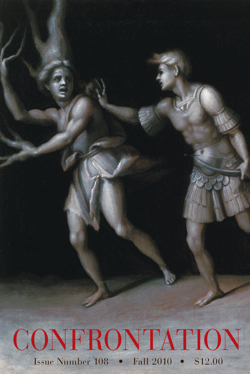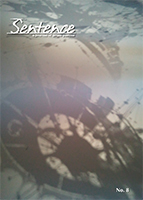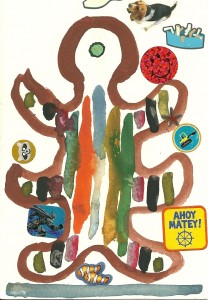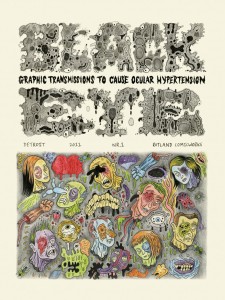February 28th, 2011 § § permalink
Consider contributing to the Kickstarter campaign for May “Afghanistan” issue of Words without Borders!
Words without Borders, a 501(c)3 dedicated to the translation, publication, and promotion of literature in translation, would like to publish an issue of contemporary writing from Afghanistan in May 2011. This will be our first issue dedicated to Afghanistan, and we believe it issue will shed crucial light on the peoples and culture of Afghanistan.
Words without Borders will be commissioning translations from both the Pashto and Dari.
Currently we’ve secured commitments from two top Dari writers of the twenty-first century: Mohammad Hosain Mohammadi’s “Dasht-i Laili,” from the short-story collection Anjirha-ye Sorkh-e Mazar which was awarded the prestigious Golshiri prize for best short-story collection in 2004-5, as well as a story by Mohammad Asif Soltanzadah.
We’ve also secured Pashto writer Sher Zaman Taizi’s “PaTay.”
WWB is offering “shot glasses, tote bags, and anthologies at the different pledge levels.” Also consider becoming a Facebook fan of the writing and publishing site StyleMatters. If they get 1,000 fans they’ll going to donate $500 to Words without Borders via Kickstarter.
February 27th, 2011 § § permalink
Would-be spec fic writers: you have till Tuesday, March 1, to get your shit together and apply to the awesome Clarion workshop, a beacon of the science-fiction & fantasy community:
Established in 1968, the Clarion Writers’ Workshop is the oldest workshop of its kind and is widely recognized as a premier proving and training ground for aspiring writers of fantasy and science fiction.
Our 2011 writers in residence are Nina Kiriki Hoffman, John Scalzi, Elizabeth Bear, David Anthony Durham, John Kessel and Kij Johnson.
I did it. I loved it. Go to it!

February 15th, 2011 § § permalink
- A Life on Paper has been longlisted for the Best Translated Book Award, news of which made it all the way across the pond into Le Magazine litteraire, as well as The Short Review. Congratulations to my fine fellow translators and authors, and their esteemed books!
- I’m a bit late blogging (blame it on international lag) the release of Confrontation No. 108, the Fall 2010 issue from last November, featuring Georges-Olivier Châteaureynaud’s story “The Bronze Schoolboy,” also available in the Small Beer collection A Life on Paper. The venerable literary journal of Long Island University, Confrontation has been following its “mission of bringing new talent to light in the shadows cast by well-known authors” since 1968, but recently came under the editorship of the capable Jonna Semeiks. It was a pleasure working with her, and an even greater pleasure to see Châteaureynaud’s name join the ranks of those Confrontation has published: W.H. Auden, John Steinbeck, Derek Walcott, Isaac Bashevis Singer, Joseph Brodsky, Nadine Gordimer, Arthur Miller, Joyce Carol Oates, T.C. Boyle, Cynthia Ozick, and Walter Abish.


February 13th, 2011 § § permalink
—So, I’m thinking of a TV show for kids. A cartoon. Let’s make it… cars vs. liars!
—The cars are the good guys?
—Of course! Cars are honest, red-blooded, and American. What are you, some kind of commie? Anyway, the cars and liars are both races of giant robots from outerspace. They come to Earth because their ancient war has destroyed their planet, and because… they need energy to survive. Like this. (shows sketch of giant robot filling up a clear square container with glowing lavender energy, like a guy at a fuel pump with a jerry can) We’ll call them… energon cubes!
—With the whole universe to choose from, why would they come to Earth for energy? And let’s go back to the cars for a moment. I’m just picturing them waiting in line—
—What did you, vote for Carter? Guys, we got ourselves a Carter-loving commie here. Wait—I’ve got it! The liars can fly!
—…but not the cars.
—Of course not. What do you think this is, the future? This is 1983. Let’s get some Jap draftsmen on this pronto before they put Chrysler out of business.
February 12th, 2011 § § permalink
February is comics month at Words Without Borders! This is the fifth edition of what has become an annual tradition: the international graphic fiction special issue. There’s great stuff to choose from this month:
- Steve Bradbury translates Hong Kong artist Chihoi’s adaptation of a story by Xi Xi. In a neat twist, the original story, in Bradbury’s translation, is also available for comparison. Of particular interest is Bradbury’s introduction to the comic, which outlines the unique and, er… sinister artistic approach Chihoi took to adapting the story. I got a chance to chat with Chihoi at the international comics festival in Angoulême last month. Ongoing coverage of the festival should be running sometime this month in the Dispatches blog section.
- Italian-raised Eurocomics legend Igort, founded of Coconino Press, looks into his Ukrainian family history with harrowing results: a timely translation by Jamie Richards, especially with the recent Stalin biographies and their revelations about the Holomodor, famine, and cannibalism.
- Editor Anjali Singh translates a bit from the first book by Nine Antico, Angoulême’s breakout gal, and the only two-time nominee for artist and writer at the festival this year. Expect great things from her, and look for maybe an interview as well, either here or at WWB.
- There’s War Rabbit by Israeli favorite Rutu Modan, published in North America by the venerable Drawn & Quarterly.
- At the festival, I also got to sit down for a coffee and a long chat with Christophe Ngalle Edimo, the writer of Malamine: An African in Paris, a hard-hitting graphic novel about the difficulties of integration facing the immigrant, and the embedded assumptions behind racism. Check out my translation and Simon Pierre Mbumbo’s art this month.
- Another translation of mine running this month is David Prudhomme’s Rébétiko. Prudhomme’s art reaches new heights in the melding of comics and music, and his feel for these footloose, pothead musicians of an outlaw, fado-like populist tradition, burning with life in a precarious political situation, lends this period piece humanity. Among such other prizes as Lire magazine’s best comic of the year, the book won the Prix Regard sur le monde at Angoulême last year, a prize taken home this year by Joe Sacco’s reportage Gaza 1956. The prize is awarded to books, fiction and nonfiction alike, that turn their gazes on the world outside France, with an international focus, though artists and writers do not necessarily have to be foreigners.
February 7th, 2011 § § permalink

“Have you never seen a man leaning on the edge of a bridge, looking at the water, with a lion behind him? Well, now, thanks to this painting, you have.” ~ Magritte, in explanation of his painting (above), Le mal du pays
Generally, the construction mal de followed by a noun translates to some ache or discomfort, but like the exact relation of the noun to the ache, the role of the preposition de varies: we might say we’re airsick (mal de l’air), or that the fact of being “in the air” is making us sick — sick from the air, or of it, in a manner of speaking — and in much the same way mal de mer (seasickness) follows, though mal des transports is at once more general and more specific. When one has a toothache (mal de dents), one is not sick of one’s tooth (or back, throat, head, stomach: all body parts can avail themselves both of this construction and mal à ), but one can blame the tooth for the discomfort much as one does the plane, the ship, or the roads.
The real trouble starts, as ever, with more abstract concepts. Having le mal du siècle is not having the ache of the century, as it quite literally looks, or even being sick from or with the siècle in general. Here the century is a sort of metonym for the world at large, hence: world-weariness. Having le mal d’amour is, naturally, being lovesick: sick with or from, but probably not of love. In one of her most famous songs, the chanteuse Barbara follows this phrase with “j’ai le mal de toi,” which should be read as I am sick not of but, again, with or from you. In such cases — unlike all the preceding ones — the implication is absence. The cause of discomfort is not the noun provided, but its lack. Which brings us to the title of this post. Logic, it seems, would ask us to read le mal du pays as being sick of a country — let us say, hypothetically, the one we’re in — rather than sick from the one we miss, though logic and language are rare bedfellows, much less logic and colloquialism. When we’re homesick, which comes first: dislike of where we are, an almost allergic bristling, or longing for where we aren’t, and its remembered ease?
February 6th, 2011 § § permalink
A nice write-up in The Valley Advocate of our beloved Small Beer Press, spec fix fixture and indie inspiration, in their ongoing quest to illuminate neglected corners of the literary landscape that lie beyond category.
“…quality of a particular kind is the key: the works all spring from careful attention to that which surprises and delights in literature. That surprise and delight are often the stuff of invention—of language, of world, of imaginative territory.”
A home for the quirky, the strange, the harder to market: hear, hear!
February 5th, 2011 § § permalink
is crachin, an etymological cousin of the verb “to spit,” and that’s what I think of every time I step out into the Brussels drizzle, so fine and ambient a mist as to infiltrate the layers of one’s clothes and very being with an infinitesimally disheartening damp: oh, the spittle of the city of Brussels.
February 3rd, 2011 § § permalink

Watercolors by Nick Arvin, stickers by Cade
February 2nd, 2011 § § permalink
is the name editor Ryan Standfest of Detroit, Michigan has given to his upcoming anthology of original narrative comics, art and essays by 42 international artists and writers, all focused on the expression of black, dark or absurdist humor. The book will be a co-production of Rotland Press and Comicworks.
Till March 4th, it’ll be up for funding on Kickstarter, with a goal of raising $2500 to help defray publishing costs. This will be a really handsome, well-produced piece of book art, deluxe volume stuffed with unique material. You can preview images from the book in a video at Kickstarter, and in continuous updates at the Rotland Press blog. The first images, of the cover and limited edition letterpress print by Paul Nudd and Onsmith, are there now.

I have a translation in BLACK EYE of “100 Good Reasons To Kill Myself Right Now” by Roland Topor, an amazing French artist and cult personality (actor, animator, writer, painter, illustrator). This will be accompanied by selected Topor cartoons. As a writer, Topor is perhaps best known for his first novel, Le locataire chimérique, the basis for Roman Polanski’s film The Tenant. Centipede Press recently reprinted Francis K. Price’s translation of the novel in an extremely limited edition with an introduction by horror master Thomas Ligotti. A great deal of Topor’s work remains untranslated, and what has been translated is often either out of print or in expensive editions scattered among small presses, but those interested in his art have this nice option from Picturebox, and a number of his animated short films, with or without Rene Laloux, can be dug up on Youtube.
But the real reason you should fund BLACK EYE is the awesome roster of artists, a veritable indie powerhouse: Stéphane Blanquet, Ivan Brunetti, Lilli Carré, Al Columbia, Ludovic Debeurme, Brecht Evens, Glenn Head, Paul Hornschemeier, Kaz, Michael Kupperman, Fanny Michaëlis, Olivier Schrauwen, Robert Sikoryak… Kickstarter features a full list.
Go check it out!





